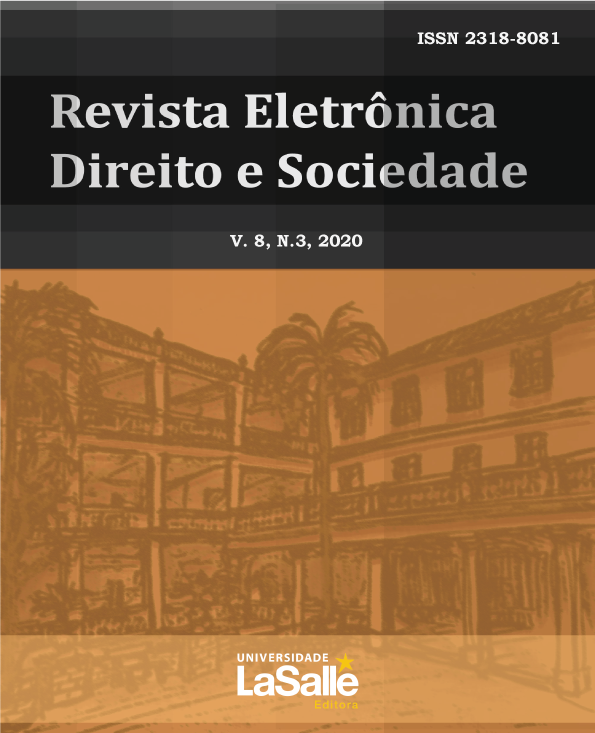The complaint of breach of fundamental precept 442: an approach from the perspective of legal pragmatism of Richard Posner
DOI:
https://doi.org/10.18316/redes.v8i3.5482Keywords:
Legal Pragmatism, Economic Analysis of Law, Richard Posner, Abortion, ADPF 442.Abstract
Richard Posner’s theory of Economic Analysis of Law (AED) has the premise that the application of law must observe the specificities of the concrete case, and the judge must make use of legal pragmatism, concerned with the repercussions of the concrete case, and not with the simple application of positive law. The present work seeks to understand how the legal pragmatism of AED offers subsidies to the debate about the decriminalization of abortion in the Brazilian reality, in particular, in a critical approach of the foundations adopted in the judgment of the argument of fundamental precept violation (ADPF) 442. The objectives of this article are present the AED theory and legal pragmatism, understand the context of the criminalization of abortion in Brazil, and consider if the pragmatic analysis could be applied in the judgment of ADPF 442. Through a bibliographical research, it was concluded that the application of the legal pragmatism of the right to verify the criminalization of conduct, related rights and economic and social consequences could be used in the judgment of ADPF 442 by the Federal Superior Court.
Downloads
Published
Issue
Section
License
Authors who submit their manuscripts for publication in the “REDES” Magazine agree to the following terms:
The authors claim to be aware that they retain copyright by giving “REDES” the right to publish.
The authors declare to be aware that the work submitted will be licensed under the Creative Commons Non-Commercial Attribution License which allows article sharing with acknowledgment of authorship and publication in this journal.
The authors declare to be aware that by virtue of the articles published in this journal have free public access.
The authors declare, under the penalty of the law, that the text is unpublished and original and that they are aware that plagiarism has been identified, plagiarized authors will be informed - willingly, to take legal action in the civil and criminal sphere - and, plagiarists will have their access to the magazine blocked.
The authors state that - in case of co-authoring - all contributed significantly to the research.
Authors are obliged to provide retractions and (or) corrections of errors in case of detection.
The authors are obliged not to publish the text submitted to “REDES” in another electronic journal (or not).
The Electronic Journal Law and Society - REDES - is licensed under a Creative Commons License. Attribution-NonCommercial 4.0 International.Based on work available at "http://revistas.unilasalle.edu.br/index.php/redes/about/submissions#copyrightNotice".
Permissions in addition to those granted under this license may be available at http://creativecommons.org/.

